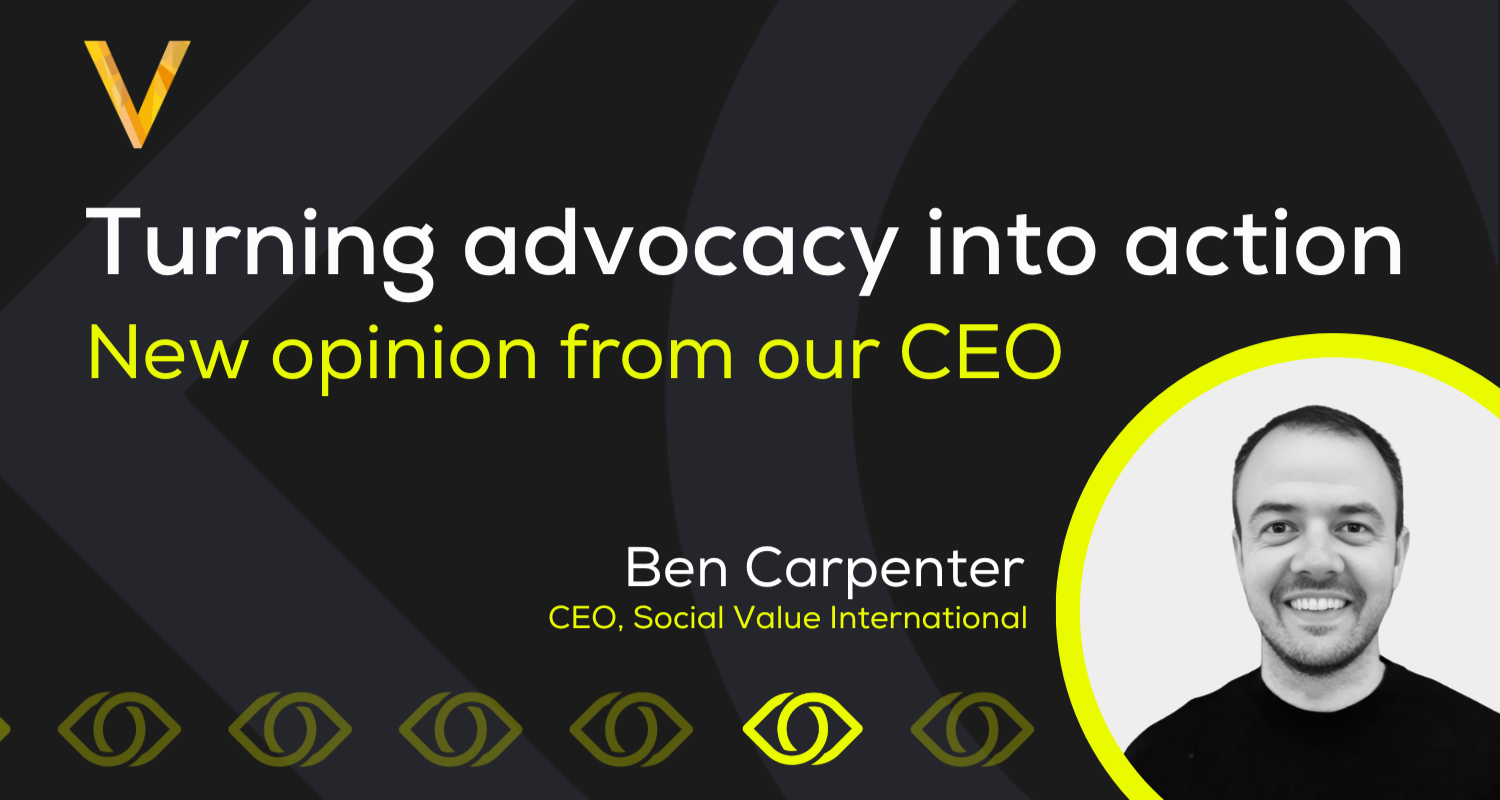Why We’re Walking the Talk on Carbon Accountability
By Ben Carpenter, CEO, Social Value International
At Social Value International, we believe that transparency, responsibility and integrity must sit at the core of how businesses operate. Drawing on our experience in hosting the True & Fair Project, we aim to move from advocacy into action in everything we do.
That’s why, in June, our Board of Trustees made a formal commitment to “accept responsibility to pay for the social consequences of use of carbon under scope 1, 2 and 3”. In other words, we publicly recognised our carbon emissions as a liability, and are now reflecting the social cost of those emissions in our financial statements. These statements are available via the UK Government’s Companies House and can also be accessed on SVI’s website.
By committing to pay for our social cost of carbon, we created what accountants refer to as a ‘constructive obligation’. This means we have ‘created a valid expectation’ that we will pay for the carbon we emit, whether directly (Scope 1), through energy consumption (Scope 2) or across our value chain (Scope 3). This has triggered a requirement to disclose this liability on our balance sheet alongside other ‘support’ costs, as reflected in the screenshot below.
SVI’s support costs showing carbon emissions as a liability
Paying for carbon emissions may seem counter-intuitive to some. After all, it reduces reported profitability by voluntarily recognising a cost that many organisations currently ignore. But this is exactly why SVI is taking action.
The True & Fair Project aims to highlight the hidden costs of doing business. These costs that don’t simply disappear; they are instead offloaded onto communities, ecosystems and future generations. By choosing to reflect these costs in our accounts, we’re taking what we believe is the responsible path - one that aligns with our values and with our call for others to do the same. In doing so, we’ve identified three key opportunities:
1. We’re aligning with the law.
In 2024, we commissioned a legal opinion that confirmed that, under UK law, company directors must consider whether sustainability information should be included in the financial statements in order to meet the true and fair requirement. In other words, directors are not just allowed to include this information - they may be required to.
2. We’re improving our internal decision-making.
By recognising the social cost of carbon as a real line in our budget, we’ve made it visible - and unavoidable - in all our planning and decision-making. While SVI is not a high-emitting organisation, accounting for this liability has deepened our reflection on the consequences of more carbon-intensive activities. If widely adopted, this approach could help all organisations reduce their dependence on carbon more rapidly and equitably.
3. We’re responding to calls to internalise externalities.
As sustainability risks intensify, an increasing number of governments, investors, standard-setters, and civil society call for the internalisation of environmental costs to correct market failures.
Most recently, the Outcome document of the Fourth International Conference on Financing for Development (FfD4), supported efforts to contribute to sustainable development by specifically calling out the need to internalise externalities. In other words, it acknowledged that the true costs of economic activity - including environmental degradation and social harm - must no longer be offloaded onto people and the planet. Instead, they should be recognised, measured, and reflected in economic and financial decision-making.
Extract from the Outcome document of FfD4
As an organisation actively pursuing solutions to internalise externalities, SVI was invited to present the True & Fair Project at the Fourth International Conference on Financing for Development (FfD4). Alongside this, we contributed to several other sessions with initiatives including UNDP, the Predistribution Initiative, Impact Management Platform, Club of Rome, Capitals Coalition, Generation Foundation and the Taskforce on Inequality and Social-related Financial Disclosures (TISFD). We will continue to engage these and other global organisations to build momentum around a shared vision for embedding sustainability into financial decision-making. We are also working to translate the FfD4 Outcome Document’s high-level calls into tangible action, by equipping companies, investors, accountants and legal professionals with the tools to reflect sustainability impacts in financial accounts.
A Blueprint for Other Organisations
So far this year, we’ve created guides to help company directors in the UK and Spain understand how they can account for their company’s climate impacts that’s both within the law and using existing accounting standards. The guide outlines two scenarios for directors to consider:
Include additional sustainability information in notes to the accounts where it's necessary to show a true and fair view; or
Make a deliberate commitment that creates a constructive obligation, which then gets recorded as an expense or a liability.
We chose the second scenario. And we’ve done so with full awareness of the implications: our auditors have reviewed the commitment, we have valued the social costs of our carbon use with the values provided by UK government and the resulting expense is included in our accounts. It is auditable, reasonable and repeatable.
We hope this action by our Board inspires other organisations, whether large corporates or small non-profits, to take responsibility for the social costs of their carbon use. Because when enough of us act, we can move from making responsible choices to inspiring a new norm.

